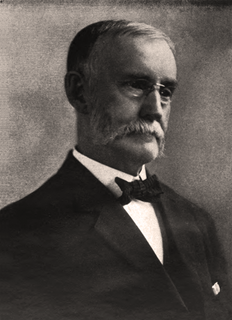A Quote by Thomas Gray
To each his suff'rings: all are men, / Condemn'd alike to groan, / The tender for another's pain; / Th' unfeeling for his own.
Related Quotes
To each his suff'rings; all are men, Condemn'd alike to groan,- The tender for another's pain, Th' unfeeling for his own. Yet ah! why should they know their fate, Since sorrow never comes too late, And happiness too swiftly flies? Thought would destroy their paradise. No more; where ignorance is bliss, 'T is folly to be wise.
Does the open wound in another's breast soften the pain of the gaping wound in our own? Or does the blood which is welling from another man's side staunch that which is pouring from our own? Does the general anguish of our fellow creatures lessen our own private and particular anguish? No, no, each suffers on his own account, each struggles with his own grief, each sheds his own tears.
You can t, in sound morals, condemn a man for taking care of his own integrity. It is his clear duty. And least of all can you condemn an artist pursuing, however humbly and imperfectly, a creative aim. In that interior world where his thought and his emotions go seeking for the experience of imagined adventures, there are no policemen, no law, no pressure of circumstance or dread of opinion to keep him within bounds. Who then is going to say Nay to his temptations if not his conscience?
The rational herdsman concludes that the only sensible course for him to pursue is to add another animal to his herd. And another; and another . . . But this is the conclusion reached by each and every rational herdsman sharing a commons. Therein is the tragedy. Each man is locked into a system that compels him to increase his herd without limit — in a world that is limited. Ruin is the destination toward which all men rush, each pursuing his own best interest in a society that believes in the freedom of the commons. Freedom in a commons brings ruin to all.
Each individual composes the music of his own life. If he injures another, he brings disharmony. When his sphere is disturbed, he is disturbed himself, and there is a discord in the melody of his life. If he can quicken the feeling of another to joy or to gratitude, by that much he adds to his own life; he becomes himself by that much more alive. Whether conscious of it or not, his thought is affected for the better by the joy or gratitude of another, and his power and vitality increase thereby, and the music of his life grows more in harmony.
Out of the silver heat mirage he ran. The sky burned, and under him the paving was a black mirror reflecting sun-fire. Sweat sprayed his skin with each foot strike so that he ran in a hot mist of his own creation. With each slap on the softened asphalt, his soles absorbed heat that rose through his arches and ankles and the stems of his shins. It was a carnival of pain, but he loved each stride because running distilled him to his essence and the heat hastened this distillation.
Men will imitate and admire his unmoved firmness, his inflexible conscience for the right; and yet his gentleness, as tender as a woman's, his moderation of spirit, which not all the heat of party could inflame, nor all the jars and disturbances of this country shake out of its place: I swear you to an emulation of his justice, his moderation, and his mercy.
Each member of the family in his own cell of consciousness, each making his own patchwork quilt of reality - collecting fragments of experience here, pieces of information there. From the tiny impressions gleaned from one another, they created a sense of belonging and tried to make do with the way they found each other.
First of all, although men have a common destiny, each individual also has to work out his own personal salvation for himself in fear and trembling. We can help one another to find the meaning of life no doubt. But in the last analysis, the individual person is responsible for living his own life and for "finding himself." If he persists in shifting his responsibility to somebody else, he fails to find out the meaning of his own existence. You cannot tell me who I am and I cannot tell you who you are. If you do not know your own identity, who is going to identify you?




































